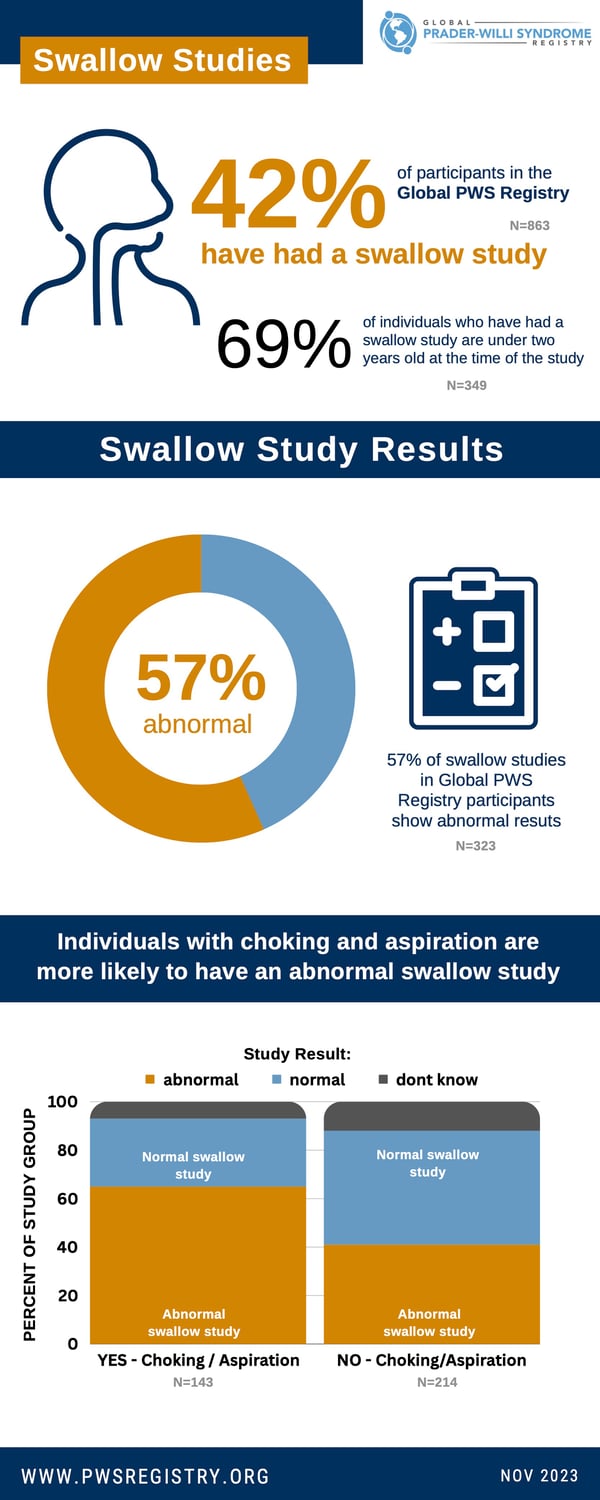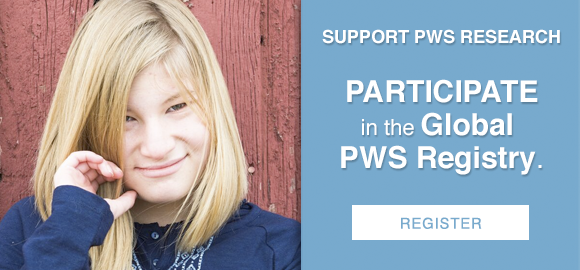For individuals with PWS, when it comes to food there is a lot of focus on hyperphagia (excessive hunger). However, another issue associated with mealtimes can be the physical act of eating and drinking itself. Many individuals with PWS struggle with dysphagia, or difficulty swallowing. Here, we focus on data from the Global PWS Registry, reporting how many individuals within the registry have had a videofluoroscopic swallow study (VFSS) which is the tool physicians use to diagnose dysphagia.

At minimum, difficulty swallowing can make mealtime challenging and time consuming, often leading to the use of feeding tubes in infants and requiring mindful eating habits throughout one’s life. However, dysphagia can also be medically serious, and in some cases, even life threatening. Food or liquids caught in the airway can cause coughing, and if not cleared can lead to choking, a topic which has been highlighted in a previous infographic. Alternatively, small pieces of food or amounts of liquid can make their way down into the lungs, this is called aspiration. Aspiration of food or liquids into the lungs can sometimes result in a lung infection or even pneumonia, requiring antibiotics and if serious enough, hospitalization. Importantly, aspiration events don’t always cause coughing or other warning signs. They can also be “silent." In fact, a 2017 study in the scientific literature found that in PWS infants who underwent swallow studies, all of the individuals who had aspiration events were having “silent” aspiration events which were only diagnosed because of the swallow study.
Within the Global PWS Registry, 42% of participants have had a swallow study. For those who have had a swallow study, most (69%) had the study before they were two years old. For participants who have had a swallow study, more than half (57%) received an abnormal result. This means that these individuals have difficulty swallowing completely and are at higher risk for choking or aspiration events. This higher risk is supported by the fact that individuals in the registry who have had a choking or aspiration event are significantly more likely to have also had an abnormal swallow study (65%) compared to individuals who have never had a choking or aspiration event (41%).
Common treatment options for swallowing difficulties include swallowing therapy with a speech and language therapist, using special spoons, using a feeding tube, and changes to diet. Recommendations during mealtime may include, but are not limited to, alternating small bites with sips of liquids, eating up right during meals, staying upright for a period of time after meals, and finishing meals with a drink.
For more information about swallow studies, whether your loved one with PWS should undergo testing, and safety habits around eating and drinking, please consult with your physician.
Many thanks to the families who contributed data to the dental survey of the Global PWS Registry. For more information on the Global PWS Registry, including how to join or to update your surveys, please visit pwsregistry.org or email the Registry here.








